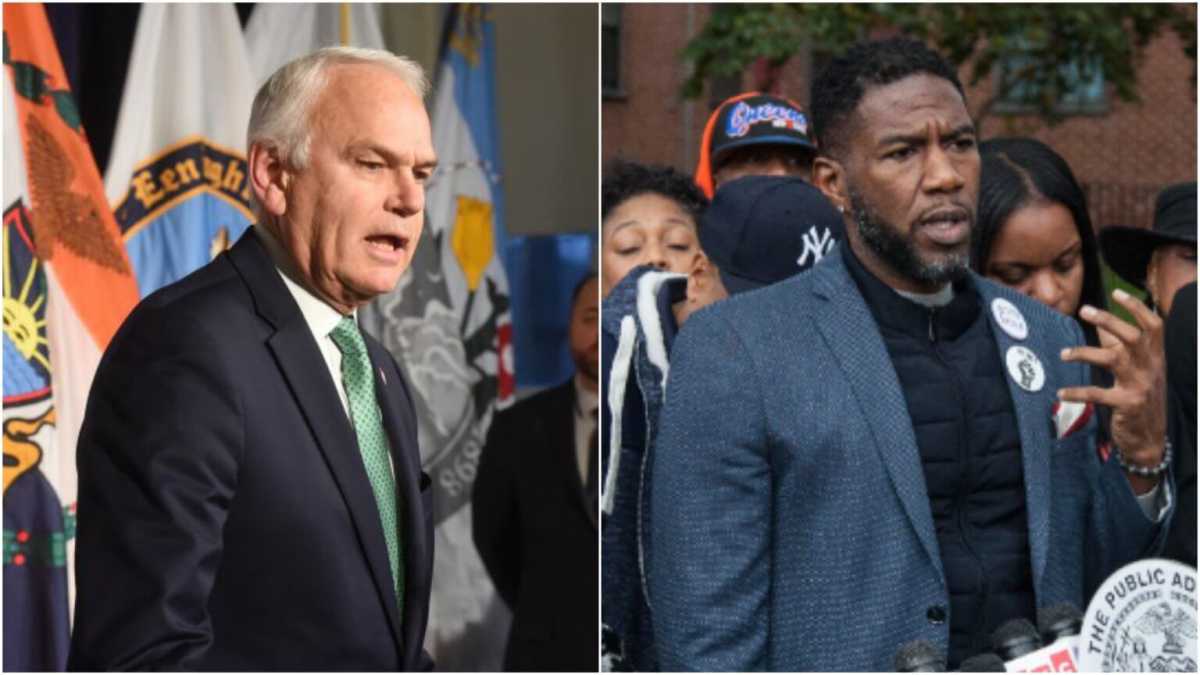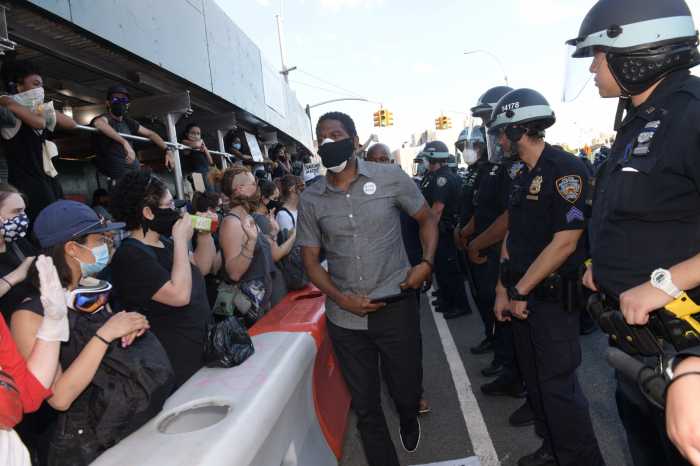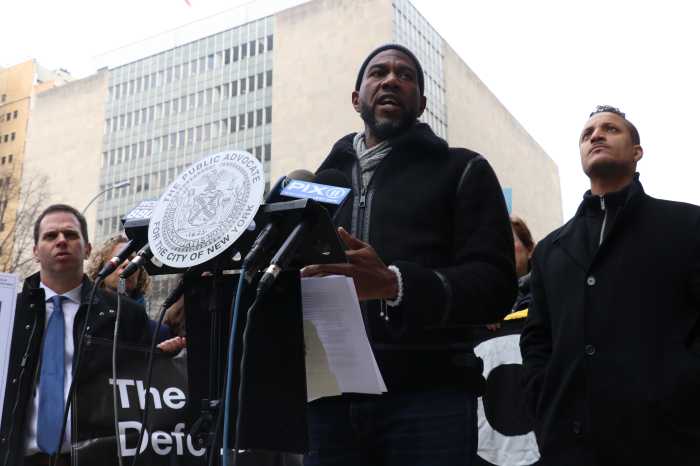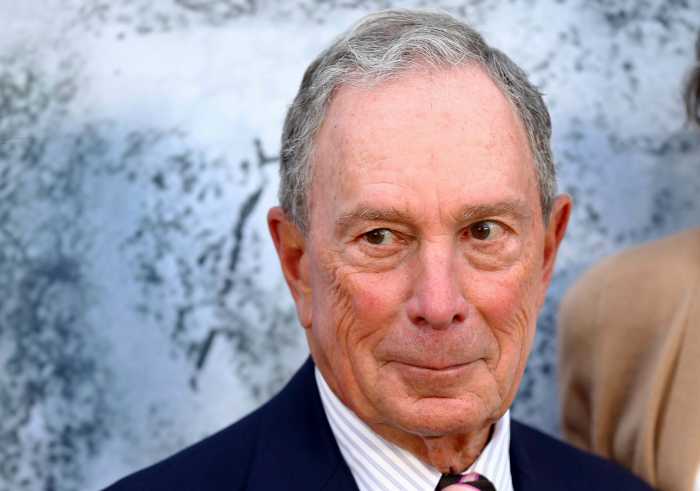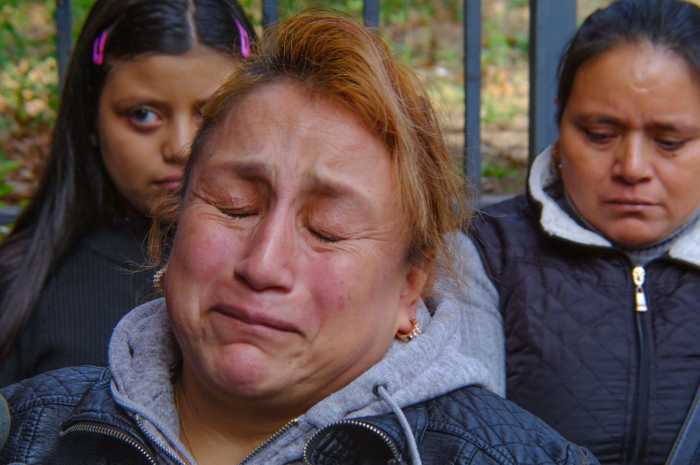Public Advocate Jumaane Williams on Wednesday, Jan. 13, was joined by Queens City Councilman Robert Holden and Manhattan Borough President Gale Brewer in a virtual press conference to call on the city to better streamline the COVID-19 vaccination process and make registration more accessible.
Williams said he is “extremely frustrated and angry” with the city and state’s vaccine rollout, while noting the “vast majority of blame” is on the federal government.
“We had six months or more to get this right,” Williams said. “At each level, there were things that could have been done to make up for the lack of leadership on the level above. I’m not looking for a perfect system […] But we want to see a system that is actually the best that we can do at the moment in time, and that’s not what’s happening.”
Williams said there is currently a “decentralized patchwork” for people who are eligible to receive the vaccination to make an appointment.
“This fails a basic accessibility requirement and responsibility for government,” Williams said, adding that a digital accessibility bill he introduced last year would require city government websites to be more accessible for more users.
Holden, who represents City Council District 30 in Queens and is chair of the Council’s Committee on Technology, sent Mayor Bill de Blasio a letter earlier in the week where he urges the city to utilize all of its available resources for what should be a “wartime effort” to get people vaccinated.
Holden particularly took issue with the city’s Vaccine Finder website, calling it a “glorified store locator.”
“One of the biggest problems in the city portal is nothing more than a glorified store locator,” Holden said. “The user puts in their ZIP Code — I did this yesterday — and is redirected to a third party website. From there, they have to fill out a form with multiple steps only to find out that there’s no appointments available. Many times people need to repeat this process dozens of times, and I did that yesterday. It was very frustrating.”
He said the city should have built a portal that had private institutions integrated with their system to only show locations where appointments are available.
Holden also pointed to Beta NYC, a civic organization advocating to improve civic design, technology and data, who found that the city isn’t tapping into all of its available resources effectively.
Noel Hidalgo, co-founder of Beta NYC, joined the call and said he spoke with several tech workers within the administration who raised concerns over the technology being used to set up vaccine appointments but were “marginalized.”
“These sites keep on failing because the city’s best service designers, the technologists and information managers, are really sitting on the sidelines,” Hidalgo said. “You can’t legislate good design, as much as I appreciate all of the pieces of legislation that are coming out there. But you can ensure that they go through a process that reduces the likelihood of releasing a product that is completely full of bugs. There is no technology cure to what ails these websites, there are only practices that this administration has developed, and that H+H and DOH should have been learning months ago.”
Hidalgo emphasized that Civic Service Design, pioneered by the mayor’s administration through the Office of Economic Opportunity, should be leading the efforts.
“These are the city’s best technology information designers and they’re sitting on the sidelines like Colin Kaepernick,” Hidalgo said. “The ignorance and not implementing their award winning toolkit is offensive to anyone who’s worked within government technology within this administration.”
Brewer emphasized that many seniors are having a hard time navigating the city and state websites to set up their appointments, and are not sure which would benefit them the most.
While the city directs individuals to their Vaccine Finder webpage for all of the available information regarding the vaccine in the five boroughs, the state has its own tool to help individuals determine whether they are eligible to receive it and where they can set up an appointment to get vaccinated.
Brewer added that it’s also taken some people more than 30 minutes to set up appointments via the COVID vaccine call lines. People have since reported even longer wait times.
“Of course, on the federal level, there’s a supply issue,” Brewer said. “But we have no reason to have a technology issue.”
The mayor and Gov. Andrew Cuomo have emphasized that the federal government is giving the state about 300,000 vaccines per week for the more than 7 million people currently eligible. As a result, vaccine supply and appointments are limited.
But Williams concluded that there are ways to fix the “technology failures” with better communication between the city and state, as well as between city agencies; increasing staffing to support the new systems and with government agencies working with advocacy organizations to spread accurate information.
“As many have said, it’s not simply a vaccine that will help us move through the COVID-19 crisis, it’s vaccinations and access to it,” said Williams. “And what we’ve seen is, especially from the governor and mayor, is a failure of outreach, failure of putting the right bureaucracy in place, and messaging. These two men have to get on the same page. Now.”
The Department of Health and Mental Hygiene noted the vaccine rollout, like the city’s entire health apparatus, is a massive undertaking requiring the resources of multiple agencies working together.
During his press conference on Monday, Jan. 11, the mayor was asked about making the appointment process simpler.
“We absolutely want the simplest possible system. Folks who are going through a lot, we want them to have as easy an experience as possible making their appointments” said de Blasio.
But he added they also have to keep in mind that they are required by law to collect certain information from individuals getting vaccinated.
“We obviously have to get the fact that people fit in the priority situation that we’re talking about now with 1A and 1B,” de Blasio said. “So there are some challenges there, but what we do find as we put any system into play that we improve it as we go along based on customer feedback, so I’m certain that’s going to happen here. […] We do have now this one unified site, nyc.gov/vaccinefinder, that will allow people a single point that they can go find the sites, make the appointment. But again, we’ll keep improving it as we go along.”
Jessica Tisch, commissioner of the Department of Information Technology and Telecommunications, echoed the Mayor’s comments and spoke about the city’s Vaccine Finder, which she said can be thought of as an “information aggregation” tool.
“The vaccine finder is intended to aggregate each provider’s locations and make that data available in one place to New Yorkers who want to look through multiple providers to see if an appointment is available,” Tisch said. “That said each provider does manage its own schedules, its own registration, and its own appointments.”
This story first appeared on our sister publication qns.com.



